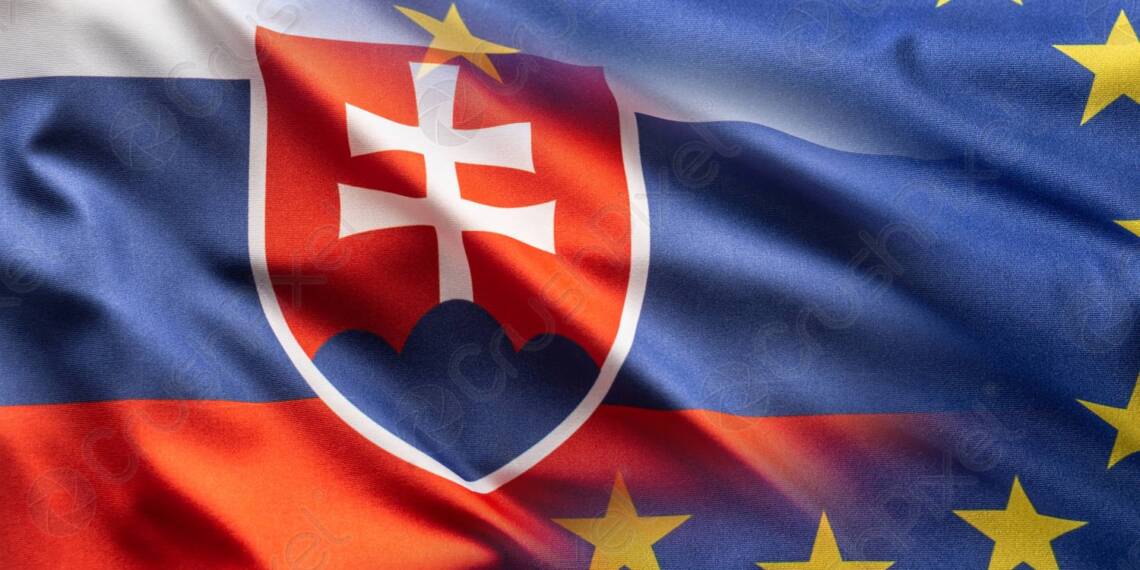In recent developments within the European Union, the government of Slovakia, led by the eurosceptic and anti-globalist Robert Fico, has come under scrutiny from European institutions. Accusations have been levied against Slovakia for purported violations of the ‘rule of law,’ particularly following amendments to the nation’s criminal code. This scrutiny places Slovakia alongside Hungary and Poland, which have previously faced similar criticisms from the EU.
Robert Fico, at the helm of the left-wing nationalist party Smer, secured his fourth term as Slovakia’s Prime Minister after the party’s victory in the parliamentary elections held in September. The party’s campaign was notably marked by its anti-migration stance and a commitment to sovereignty, coupled with Fico’s vocal criticisms of EU and U.S. interference in Slovak domestic matters. His pledge to cease military aid to Ukraine further strained relations with the EU elite, culminating in a resolution by the European Parliament that censured Slovakia for its perceived shortcomings in combating corruption and safeguarding the EU budget.

Join us on Telegram: https://t.me/tfiglobal
One of the first legislative moves by Fico’s administration was to propose a bill aimed at dismantling the Special Prosecutor’s Office, which Fico argues was weaponized by the preceding centre-right-liberal government to target opposition figures under the guise of corruption charges. Fico himself faced accusations of forming a criminal group two years prior, though a lack of sufficient parliamentary support shielded him from losing his legal immunity.
The legislation also seeks to mitigate sentences for various offenses, including misuse of EU funds, corruption, tax fraud, theft, and manipulation of public tenders, with many crimes potentially resulting in suspended sentences or home detention. This has led the current Europhile opposition, which has recently organized protests against the government, to view these changes as Fico’s attempt to insulate his political and business associates from ongoing investigations. Several individuals affiliated with the prime minister’s party are embroiled in corruption scandals, with their cases previously under the purview of the Special Prosecutor’s Office now set to be transferred to other prosecutorial authorities.
President Zuzana Čaputová, aligned with the liberal opposition party Progressive Slovakia, has expressed intentions to veto the bill. Should her veto be overridden by the governing majority, she plans to refer the matter to the Constitutional Court for further examination.
Read More: After Sweden, Slovakia and the Netherlands, Romania is also going RIGHT
Despite the legislation being passed in accordance with national constitutional procedures, the European Commission has intervened, asserting its role as the ‘guardian of the EU treaties’ to critique the Slovak government’s actions under the ‘rule of law’ framework. Slovak media report that the Commission has dispatched two letters to Bratislava, threatening actions to ‘defend the EU’s interests,’ including potential sanctions that may affect Slovakia’s access to EU funds. This approach mirrors the Commission’s previous actions against the conservative governments of Hungary and Poland, who have also faced EU backlash for their anti-immigration and anti-federalist policies.
The European Commission’s move to suspend the assessment of Slovakia’s request for €900 million in EU funds marks an initial step in what appears to be retaliatory measures against the Fico administration. This scrutiny of Slovakia’s judicial reforms contrasts with the seemingly lenient stance towards the new leftist-centrist government in Poland, which has undertaken controversial actions without facing similar EU sanctions.
Furthermore, the centre-right government in Greece, led by the New Democracy party since 2019, finds itself in a comparable situation. The European Parliament has recently criticized Greece for issues purportedly undermining the rule of law, including the treatment of illegal migrants and asylum-seekers, urging the European Commission to initiate an infringement procedure against Greece. Despite these challenges, the New Democracy party remains popular domestically, credited with economic revival and reducing migrant arrivals.
The EU rule is simple – you follow our rules or kiss your funds goodbye. No wonder the EU is disintegrating right before our eyes.







